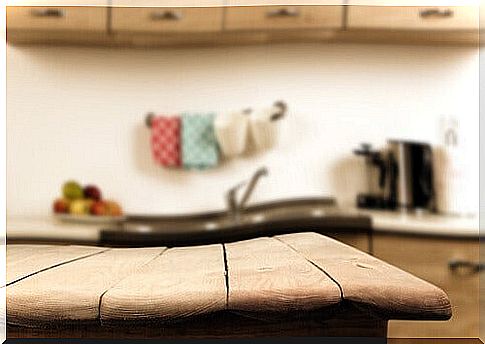It Is Never Late If The Time Is Right

It seems to be more and more accepted the idea that time is built moment by moment, accumulating experiences that lull us and push us towards circumstantial currents. German physics professor and scholar Georg Lichtenberg said that nothing makes us age faster than the incessant thinking that we are aging.
To think that it is too late to do something is to give wings to “never” and to kill opportunities and winds of change in different areas of our life. We must understand that deciding to carry out a certain activity should not depend on the time we have left in the day, week or life; it is something that must be valued according to the moment in which we find ourselves.
The eternal things left in abeyance
We can always complain about lost time, sacrificed free time or abandoned pastime. All of this can generate some anxiety. An anxiety that leads us to mull over thoughts like “I shouldn’t have left him”, “after all the effort it took”, “when the right time is”. On the other hand, unattainable proposals can make us feel disappointed in ourselves, since we fail to achieve the set goal, which is outside our current possibilities.


It must be said that when we propose a purpose again, it tends to revolve around the incorporation of new activities. Not a bad idea. However, it is equally true that we can look around us, observe what we already do or possess and use it to our advantage.
Working to improve it, broaden the vision about it and deepen everything. Perhaps by following this apparently more modest path, we will gain a more valuable lesson than we could achieve by pursuing goals that are beyond our short-term capabilities, even if they are more appealing to us at first.
Reinventing a known “moment”
Reinterpreting one of the elements that occupy our days can bring many more things if we change the prism through which we look at it.
Many times growth is not as far off as we think. In fact, simply by changing the perspective from which we observe many elements that occupy our daily life – relationships, behaviors, goals, etc. – we can make great discoveries.
Infinite skills and abilities can be enhanced if we change our point of view. To simplify, I will rely on personal experience. During the Christmas period, during which I had more free time, I started a proposal for reinvention. I concentrated on an activity that up until that moment I was doing automatically: cooking. With this different perspective on an activity that I carried out “without awareness”, I realized that I could bring many elements to my life, not just a rich and varied diet.

Cooking is an element that, while motivating for some, can be a nightmare for others. We usually reduce it to an excuse to socialize, to get nutrients and to activate the taste. However, beyond that, there are other possibilities that we often don’t explore and that I have been lucky enough to practice and refine.
Besides the obvious
Each activity hides hidden qualities that can make us enjoy that moment to the fullest. In my particular case with the kitchen, I have discovered several:
- Creativity: an important aspect in the kitchen is change: having the courage to imagine new dishes, to cook them and try them. This advantage is typical of this discipline. It is true that sometimes it is better to stick to a specific recipe – especially pastry – but it is only part of the process. Do you think that it does not end until it meets a palate who tastes the dish. So, for example, we can give vent to our imagination in creating a particular arrangement of the elements or, simply, decorate what we have already done.
- Discipline: the other side of the coin. Accuracy and timing are important elements for many activities; in fact, for the result to be positive, we must have both elements under control. Learning to measure and work following the instructions and the ordered steps is a discipline that will guarantee a “correct realization” of our creativity.
- Patience: in this case there are two ways. Be patient with yourself and be patient with discipline itself. Respecting personal learning times, as well as the processes we undertake is essential to be successful. In fact, it is easy for haste and the desire to finish are two of the factors that negatively affect the final result. Furthermore, you must think that cooking, like any other pastime, should follow a different pace from the one we adopt to fulfill our daily obligations.
- Memory: we can see cooking as a challenge. Trying to memorize recipes, quantities or ingredients, we train and test our short and long term memory.
- Planning: Currently it is an essential element in our daily life. Knowing when, how and what to do at each moment will help us focus our time on the activities we need to do without constantly revising our mental agenda. Therefore, having a structured and, at the same time, flexible agenda will free us of the mental resources that we can thus allocate to improve the experience of the activity in which we are immersed.
- Frustration tolerance: making mistakes. Train and keep making mistakes. Thinking of not knowing or not being able is a demon that threatens us at any time and in any circumstance. In this discipline you are wrong, you start over and, possibly, you are wrong again. We need to revise our expectations, analyze mistakes and work to improve little by little.

I did not want to conclude without pointing out a further goal: the disconnection with our routine and, in many cases, anxious rhythm. Focus on something that involves us, that does not make us think of anything else; the path of reinvention can take place in the kitchen or by restoring the furniture of the house, by hand binding the very used books that occupy our bookcases… it does the same. Finding an activity with which we can change our pace is essential for our well-being.
Look around, search, stop, reinvent yourself, make mistakes, learn and pull the plug.









